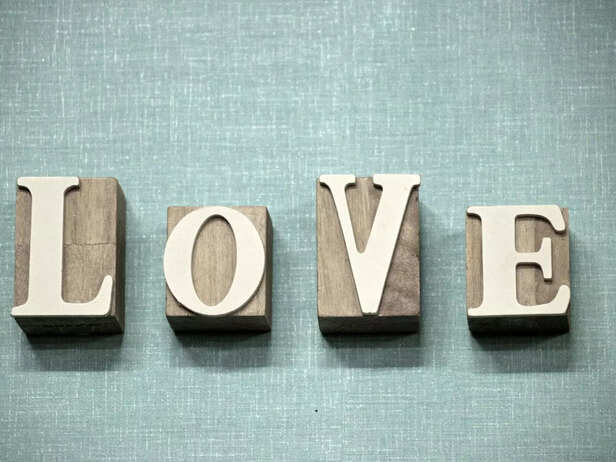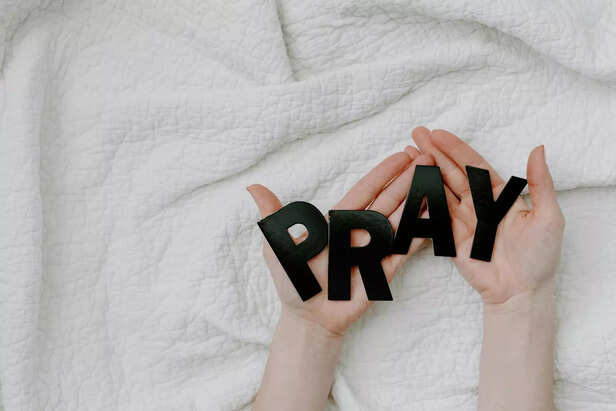Love vs. Religion: Does Religion Really Define Us in Love, or Do We Define Religion in India
Riya Kumari | Mar 01, 2025, 00:00 IST
( Image credit : Pexels, Timeslife )
Let’s be honest. The whole “love vs. religion” debate in India is like trying to choose between a perfectly crispy samosa and a warm, gooey chocolate brownie. You want both, but someone somewhere is going to judge you for picking one over the other. Society throws a blanket of expectations over our hearts, and suddenly, we’re forced to fight for love like it’s some kind of elusive treasure locked behind the doors of a temple. But why? Is love really that picky? Or do we just make it seem that way?
In a world where love is expected to conquer all, we’ve somehow let religion claim the spotlight. In India, the conversation around love often feels like a tug-of-war between the heart and a complex web of cultural, societal, and religious expectations. We’re constantly told that love, pure as it may be, has limits. And these limits? Well, they usually revolve around the question of religion. So here we are, navigating a delicate balance between two powerful forces: love, the instinctive force that binds us, and religion, the system of beliefs that often divides us. But how much does religion truly define our capacity to love? Does it shape the choices we make in matters of the heart, or have we allowed it to be the one thing that keeps us from freely loving?
1. Religion as the Gatekeeper of Love—Or Is It?

We’ve all heard the stories—the ones that echo through our families, through our communities, and often through the corners of our own minds. The ones that tell us love cannot cross the line of religious boundaries, that a marriage is not just a union of two souls, but the merging of two belief systems. The idea that faith and love must align, that religious identity is the foundation upon which love is built, is one we’ve grown used to hearing. But if we take a moment to pause and reflect, we realize that this view is not necessarily universal—it’s learned.
Religion is an important part of our identities, yes. It provides us with structure, history, and a moral compass. But when it comes to love, religion shouldn’t be the defining principle. Love is, and has always been, a deeply personal experience. It’s about connection. It’s about the shared spaces we create with another person—spaces that are often bigger and more complex than the walls built by religious dogma.
The assumption that religious identity should dictate whom we love is flawed. If love were defined solely by religion, then humanity itself would be reduced to just a collection of checkboxes, divided by categories that have little to do with the essence of who we are. In reality, love doesn’t need a religious stamp of approval. It transcends the boundaries of belief systems, casting aside the need for conformity. The only prerequisite for love is that it exists between two people who choose to see each other not through the lens of their faith but through the truth of their hearts.
2. Religion is a Structure, Not the Substance of Love

Here’s a truth we need to confront: religion, in many ways, has become a structure we use to navigate life’s most difficult questions. It offers answers, a sense of belonging, and a way to make sense of the world. But love? Love is not a structure. It’s the very force that challenges structures. It’s the impulse that pushes against boundaries, against limitations. It’s a force that cannot be reduced to a set of rules or confined to a single identity.
The idea that religion defines our love speaks to the power structures in place that seek to preserve control over personal choices. These structures tell us what’s acceptable, what’s allowed, and what’s “right” according to the norms of society. But if we’re to be honest with ourselves, these are not the things that sustain love. What sustains love is not doctrine or dogma, but mutual respect, understanding, and the willingness to be vulnerable. It’s about the way we see the world through another person’s eyes, how we navigate the uncertainties of life hand-in-hand.
And this isn’t a rejection of religion, but rather a call for its evolution. To view love through the lens of religion exclusively is to limit both the power of love and the potential of religion. Religion, at its best, should expand our capacity to love, not restrict it. The moment we allow religion to become the gatekeeper of our hearts, we rob ourselves of the freedom to experience love in its fullest, most uninhibited form.
3. We Have the Power to Redefine Religion

So what if we flip the script? What if, instead of religion defining our love, we allowed our love to redefine the way we engage with religion? What if we stopped seeing religion as something that dictates who we can or cannot love, and instead saw it as a means of deepening our understanding of the connection we share with others?
It’s a difficult question, but it’s also a necessary one. The reason we struggle with the intersection of love and religion is because we’ve placed the power to shape our identities in the hands of an institution that may not always have our best interests at heart. In doing so, we’ve become passive participants in the narrative of love, rather than active authors of our own stories.
We have to ask ourselves: Do we believe that love is truly bound by the limits of religious doctrine, or do we have the courage to challenge that assumption? Can we be brave enough to love across religious lines, knowing that the essence of love is far bigger than the narrow definitions that religion often imposes? Love, when viewed in its purest form, is an act of defiance against the boundaries that society and religion seek to place around it. It is the refusal to let anything, not even faith, dictate the way we choose to connect with another human being. And in that sense, love is revolutionary. It is an act of profound self-awareness that requires us to question the structures we’ve inherited, to look beyond the traditional roles we’ve been assigned, and to choose something far more radical—our own truth.
4. Conclusion: Love Should Be a Choice, Not a Negotiation

In the end, love is not a negotiation. It’s not about finding ways to compromise our beliefs or make concessions based on someone else’s standards. It’s about choosing to love—purely and unconditionally—without the constraints of what society or religion dictates. Because when it comes down to it, love should never be defined by external forces. It should be defined by the authenticity of the connection we share with another person.
So, the next time someone tells you that love cannot exist without religion, or that your faith defines your capacity for love, remember this: love is the truest expression of freedom. It exists beyond religion, beyond cultural divides, and beyond the walls we’ve built around ourselves. It’s time we stopped letting religion define our love, and instead allowed our love to redefine how we engage with religion.
1. Religion as the Gatekeeper of Love—Or Is It?

Love
( Image credit : Pexels )
We’ve all heard the stories—the ones that echo through our families, through our communities, and often through the corners of our own minds. The ones that tell us love cannot cross the line of religious boundaries, that a marriage is not just a union of two souls, but the merging of two belief systems. The idea that faith and love must align, that religious identity is the foundation upon which love is built, is one we’ve grown used to hearing. But if we take a moment to pause and reflect, we realize that this view is not necessarily universal—it’s learned.
Religion is an important part of our identities, yes. It provides us with structure, history, and a moral compass. But when it comes to love, religion shouldn’t be the defining principle. Love is, and has always been, a deeply personal experience. It’s about connection. It’s about the shared spaces we create with another person—spaces that are often bigger and more complex than the walls built by religious dogma.
The assumption that religious identity should dictate whom we love is flawed. If love were defined solely by religion, then humanity itself would be reduced to just a collection of checkboxes, divided by categories that have little to do with the essence of who we are. In reality, love doesn’t need a religious stamp of approval. It transcends the boundaries of belief systems, casting aside the need for conformity. The only prerequisite for love is that it exists between two people who choose to see each other not through the lens of their faith but through the truth of their hearts.
2. Religion is a Structure, Not the Substance of Love

Love
( Image credit : Pexels )
Here’s a truth we need to confront: religion, in many ways, has become a structure we use to navigate life’s most difficult questions. It offers answers, a sense of belonging, and a way to make sense of the world. But love? Love is not a structure. It’s the very force that challenges structures. It’s the impulse that pushes against boundaries, against limitations. It’s a force that cannot be reduced to a set of rules or confined to a single identity.
The idea that religion defines our love speaks to the power structures in place that seek to preserve control over personal choices. These structures tell us what’s acceptable, what’s allowed, and what’s “right” according to the norms of society. But if we’re to be honest with ourselves, these are not the things that sustain love. What sustains love is not doctrine or dogma, but mutual respect, understanding, and the willingness to be vulnerable. It’s about the way we see the world through another person’s eyes, how we navigate the uncertainties of life hand-in-hand.
And this isn’t a rejection of religion, but rather a call for its evolution. To view love through the lens of religion exclusively is to limit both the power of love and the potential of religion. Religion, at its best, should expand our capacity to love, not restrict it. The moment we allow religion to become the gatekeeper of our hearts, we rob ourselves of the freedom to experience love in its fullest, most uninhibited form.
3. We Have the Power to Redefine Religion

Pray
( Image credit : Pexels )
So what if we flip the script? What if, instead of religion defining our love, we allowed our love to redefine the way we engage with religion? What if we stopped seeing religion as something that dictates who we can or cannot love, and instead saw it as a means of deepening our understanding of the connection we share with others?
It’s a difficult question, but it’s also a necessary one. The reason we struggle with the intersection of love and religion is because we’ve placed the power to shape our identities in the hands of an institution that may not always have our best interests at heart. In doing so, we’ve become passive participants in the narrative of love, rather than active authors of our own stories.
We have to ask ourselves: Do we believe that love is truly bound by the limits of religious doctrine, or do we have the courage to challenge that assumption? Can we be brave enough to love across religious lines, knowing that the essence of love is far bigger than the narrow definitions that religion often imposes? Love, when viewed in its purest form, is an act of defiance against the boundaries that society and religion seek to place around it. It is the refusal to let anything, not even faith, dictate the way we choose to connect with another human being. And in that sense, love is revolutionary. It is an act of profound self-awareness that requires us to question the structures we’ve inherited, to look beyond the traditional roles we’ve been assigned, and to choose something far more radical—our own truth.
4. Conclusion: Love Should Be a Choice, Not a Negotiation

Love
( Image credit : Pexels )
In the end, love is not a negotiation. It’s not about finding ways to compromise our beliefs or make concessions based on someone else’s standards. It’s about choosing to love—purely and unconditionally—without the constraints of what society or religion dictates. Because when it comes down to it, love should never be defined by external forces. It should be defined by the authenticity of the connection we share with another person.
So, the next time someone tells you that love cannot exist without religion, or that your faith defines your capacity for love, remember this: love is the truest expression of freedom. It exists beyond religion, beyond cultural divides, and beyond the walls we’ve built around ourselves. It’s time we stopped letting religion define our love, and instead allowed our love to redefine how we engage with religion.
